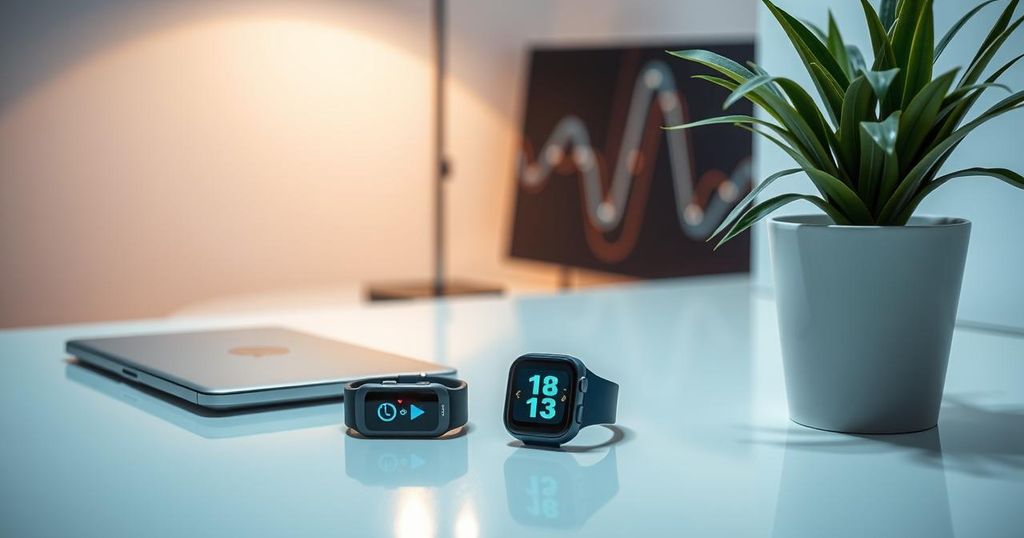Transformative Power of Wearable Health Technology in Chronic Disease Management
Wearable health technology has transformed patient care by providing real-time health data, improving chronic disease management. Devices such as glucose monitors offer insights that enable quick doctor responses, thus enhancing patient engagement and potentially saving lives. Despite some challenges like privacy concerns and costs, the future of wearables promises even more tailored health advancements.
In recent years, wearable health technology has revolutionized the way patients monitor their health, offering real-time insights without the long waits of traditional doctor visits. With devices like glucose monitors or pacemakers, patients with chronic diseases can relay critical information directly to their healthcare providers, allowing for quicker responses and potentially life-saving interventions. A study from the University of Queensland highlights how these wearables significantly enhance management of chronic conditions, transforming patient care dynamics.
Modern wearable devices have evolved beyond basic heart rate monitors to encompass a wide array of health metrics. They can track sleep quality, analyze heart rhythms, monitor blood pressure, and more. For instance, a glucose meter can continuously send data about blood sugar levels to healthcare professionals, aiding doctors in devising tailored treatment plans. Thoughtful design in choosing these devices considers accuracy, user-friendliness, and data sharing capabilities, ensuring they seamlessly fit into patients’ health management strategies.
The benefits of wearable health technologies extend far beyond mere data collection; they foster better patient engagement and proactive health management. Patients can actively participate in monitoring their health, which increases their investment in treatment. Moreover, wearables can decrease healthcare costs by minimizing unnecessary emergency visits, offering timely assistance before situations escalate into emergencies, and providing continuous health tracking for more informed interventions.
However, despite their advantages, wearables face challenges such as high initial costs and data privacy concerns. Patients often struggle to have insurance cover these devices, though new initiatives are emerging to improve accessibility. Moreover, ensuring the security of transmitted data is paramount to prevent serious privacy breaches. Maintaining accuracy and educating patients about proper usage of these devices are also critical for maximizing their potential benefits.
Looking ahead, advancements in wearable technology promise to further personalize chronic disease management. Future devices might enable real-time adjustments for medication, such as insulin dosages based on glucose readings, and integrate comprehensive health insights. The evolving landscape of wearable health tech beckons a brighter future, particularly in enhancing care for those grappling with chronic illnesses.
In essence, wearable health technology embodies a paradigm shift in chronic disease management. These innovations cultivate better patient engagement, reduce costs, and significantly enhance health monitoring capabilities. As technology continues to advance, its potential to revolutionize health management further holds promise, inviting individuals to reclaim authority over their well-being.
Wearable health technology represents a transformative force in managing chronic diseases, offering real-time data that fosters patient engagement and promotes timely interventions. Despite facing challenges like costs and privacy concerns, the potential for improved health outcomes is remarkable. The future of this technology hints at even greater personalization and insight in chronic disease management, underscoring its crucial role in modern healthcare.
Original Source: medcitynews.com




Post Comment